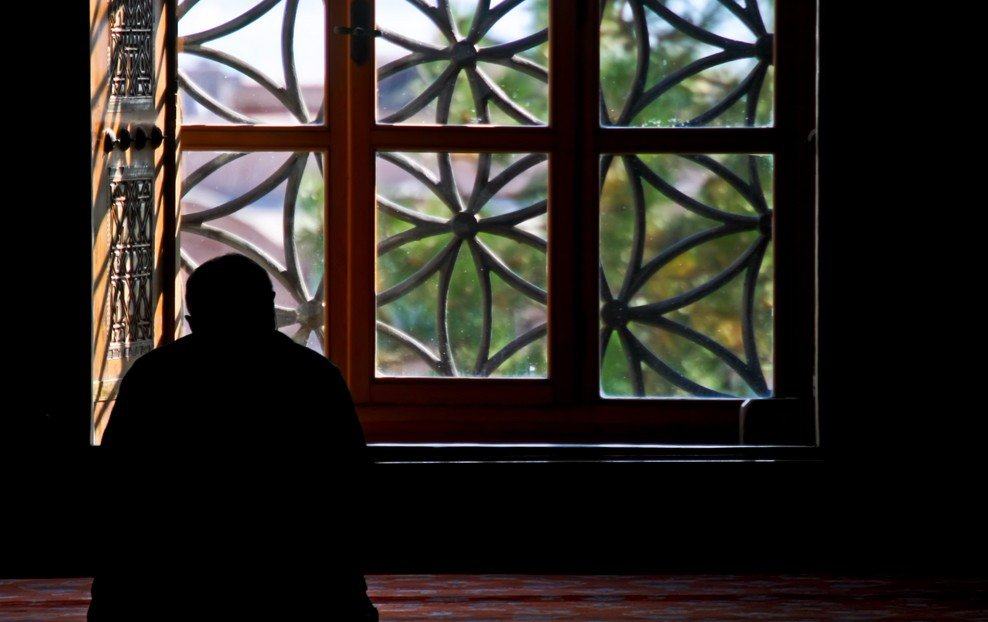Just off the airplane that had carried me to Dar es Salaam, I stepped into my new bedroom and immediately heard the Muslim call to prayer. “Dorothy, we’re not in Kansas anymore,” I thought.
It was 4:00 in the morning, but that didn’t stop one of the nearby mosques from calling people to rise and pray. “Get up! Get up! Your bed will turn into a coffin,” the man called yelled in Swahili.
What began as a novel experience has become a morning routine. Even if the message isn’t aimed at me, it has become my own personal call to prayer.
Like the other sounds, smells, and sights I encounter every day, this morning call to prayer comes through my mosquito screen-covered window into my life. I’ve begun to call it my bedroom window spirituality.
***
Truism: we do not enter into relationships with others, God included, in some disincarnate spiritual zone. Our spiritual life is rooted in and shaped by our daily experiences.
I use the same prayer methods I did before, but these are not the same prayers. Now it’s Dar es Salaam, sneaking below the window curtains, that curbs the sharp edges of my prayers. It’s my crowded, industrial, religiously diverse neighborhood that cups my encounter with the Gospel.
So now I’m called to prayer by three nearby mosques. Now the downshifting of diesel truck engines grinds across my room. Now the sweet, sharp smell of burning plastic slides up the walls of my house and into my room.
The images that appear when I pray the examen – or when I catch myself daydreaming rather than lesson planning – tend to look a lot like the flood of people and things that I see during the rest of the day.
I see the woman who offers me fried cassava when I walk by. I hear the greeting of “As-salamu alaykum” from my kofia-wearing neighbors. I taste the soda1 and feel the ubiquitous plastic chairs that strangers and new friends offer me.
Unlike a faucet, I can’t – and wouldn’t want to – turn off this flow images. When I close my eyes and turn my thoughts to the Lord, I’m immersed in images of Dar es Salaam in all its generosity and struggle and beauty. It’s these people who drip into my reflection on God’s activity in our world.

Kigamboni Mosque, Dar es Salaam, by Pernille Bærendtsen
In “Isolated and Under-Exposed: Why the Rich Don’t Give,” Nate Berg illustrates how what we see around us has an impact on how we relate to others. Berg highlights a recent study by The Chronicle of Philanthropy that indicates two things: first, that the rich give a lower percentage of their discretionary income to charity; second, that rate of giving goes up when wealthy people live in economically diverse neighborhoods, rather than in affluent enclaves.
Those windows into our rooms can also be windows to our hearts, opening them up – or not – to the challenges faced by others.
***
Of course, we’re not stuck. We can live in a wealthy area and still enter into relationships with those of different backgrounds. We can live lives of committed service from many home locations.
But in my own experience, simply reading about something or someone “out there” doesn’t bring spontaneous prayers to my heart in the way that rubbing shoulders does.
I knew about malaria, but then it killed my friends’ child. I had read about AIDS, but it became real to me when a student told me that his parents died of it and that he was HIV positive. Like the sound of that call to prayer, they had entered the window of my life.
***
Bedroom window spirituality actually has deep roots in Jesuit tradition.
Ignatius of Loyola, sensitive to how our external world affects our internal life, used to advise retreatants to adjust the light in their rooms to suit the mood of the retreat. During the first week of the Spiritual Exercises, when one contemplates sin, Ignatius instructs us to deprive ourselves of light.
A master spiritual director I know asks those he accompanies to commit themselves to regular contact with the material poor. It makes sense to spend time with the people and in the places where Jesus said he would be.2
***
We move too often as Jesuits. Eventually, I’ll leave Dar es Salaam and won’t have a 4:00 AM wake-up call unless I set the alarm myself. Still, no matter where I go, my bedroom window will be a way for God to get through to my heart.
– // –
This post, which originally appeared on October 15, 2012, was revised on June 11, 2016.
The cover image by Flickr user Stefano Corso can be found here.
- Does anyone else who grew up in a “pop” part of the country feel like you’re betraying your roots every time you find yourself uttering the word “soda?” Even when the local word in Swahili is “soda,” I still can’t say it without a little inner-squirming. ↩
- None of this is to say that the window with the roughest, or loudest, or ugliest view is the most spiritual. Getting caught up in a kind of dark competition to see who can suffer the most is just as far from real spirituality as is locking ourselves away in affluence. ↩


